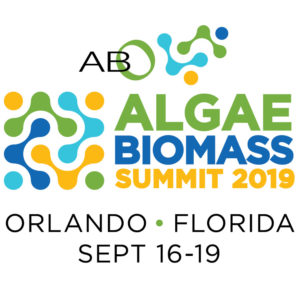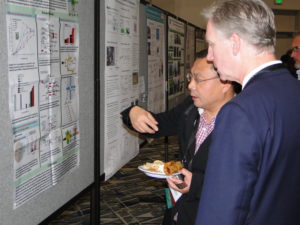 On September 25 and 26, 2019, the U.S. Department of Energy’s Energy Efficiency and Renewable Energy’s (EERE’s) Bioenergy Technologies Office will host a workshop to identify data and R&D needs to enable the use of dedicated energy crops and algae for restoring water quality and enhancing soil health, while creating a new feedstock supply for the bioeconomy. Participants will discuss the current state of technologies relevant to both terrestrial and algal biomass, as well as the potential for these technologies to reverse environmental degradation and provide important ecosystem services. If successful, these technologies have the potential to increase availability and reduce costs of bioenergy and bioproducts.
On September 25 and 26, 2019, the U.S. Department of Energy’s Energy Efficiency and Renewable Energy’s (EERE’s) Bioenergy Technologies Office will host a workshop to identify data and R&D needs to enable the use of dedicated energy crops and algae for restoring water quality and enhancing soil health, while creating a new feedstock supply for the bioeconomy. Participants will discuss the current state of technologies relevant to both terrestrial and algal biomass, as well as the potential for these technologies to reverse environmental degradation and provide important ecosystem services. If successful, these technologies have the potential to increase availability and reduce costs of bioenergy and bioproducts.
The workshop will focus on the current state-of-the-art and R&D needs pertaining to:
- Using dedicated energy crops to improve water quality and soil health (e.g., enhanced soil carbon levels) and provide other benefits
- Algae technologies including direct harvest of algal blooms, turf scrubbers, and macroalgae
- Quantification and valorization of ecosystem services
- Low-cost sensors and data management systems that enable production of dedicated energy crops and algae
- Overcoming challenges of integrating biomass production for restoration with bioenergy feedstock supply chain needs
This workshop will be held at the Argonne National Laboratory in Lemont, IL.
Date and Time:
September 25: 8:00 a.m. – 5:00 p.m.
September 26: 8:00 a.m. – 12:00 p.m.
Location:
Argonne National Laboratory
9700 S. Cass Avenue
Lemont, IL 60439

 UK-based retail giant Tesco has called for an increased use of algae-based feeds in farmed salmon. The news is a big development for the algae industry, the future of aquaculture, and those that are watching how global supply chains must become more sustainable to meet the needs of growing populations.
UK-based retail giant Tesco has called for an increased use of algae-based feeds in farmed salmon. The news is a big development for the algae industry, the future of aquaculture, and those that are watching how global supply chains must become more sustainable to meet the needs of growing populations. 

